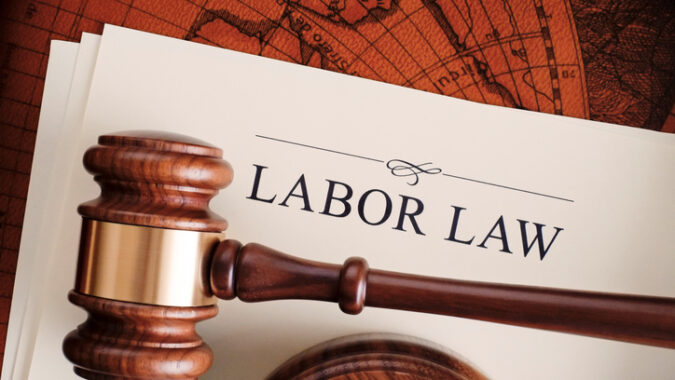NJBIA recently hosted a virtual Employment and Labor Policy Committee to discuss new developments regarding labor and employment policy issues.
The event was attended by Senator Doug Steinhardt (R-23) and Anthony Rainone, Esq. from Brach Eichler LLC.
As the newest member of the Senate Labor Committee, Sen. Steinhardt set out his priorities for the coming session, including his goal of making New Jersey a more affordable, less-regulated environment for both businesses and families.
Steinhardt’s priorities for the Senate Labor Committee sparked both questions and comments from members who felt that New Jersey’s business climate makes growing and starting a business difficult, especially while other states are offering incentives for businesses to relocate there. Steinhardt agreed, noting that he is actively looking for solutions and suggestions to take back to the Legislature.
Following Steinhardt’s remarks, Rainone presented three major employment law issues for New Jersey businesses to be aware of in 2023. The first of which included amendments to the NJ WARN Act which had initially been delayed due to the pandemic but will take full effect in April.
Rainone explained that these amendments include requirements of a 90-day notice for employee layoffs, payment of one week severance for each year an employee worked at the company and applies to any employer in New Jersey with 100 or more employees nationwide.
Policy changes, slated to take effect in May and August, for the staffing industry were the next issue that Rainone urged members to be aware of. He explained that recently signed Temporary Workers Bill of Rights will require temporary workers to be paid the same average rate of pay as permanent employees as well as the cash equivalent for the average cost of benefits. Third-party companies utilizing temporary workers will be jointly liable for all wages and benefits paid to those workers.
Rainone discussed national trends by mentioning recently proposed prohibitions on non-disparagement clauses in confidentiality agreements set forth by the National Labor Relations Board. Essentially, this would apply to all non-management and supervisory employees and would require employers to remove non-disparagement clauses directly stated in severance contracts.
Lastly, he mentioned the Federal Trade Commission’s recent rule proposal that would make non-compete contracts illegal. He mentioned that this rule proposal is still in the comment period and that the FTC has already received pushback from the business community. NJBIA’s Vice President of Government Affairs, Alexis Bailey, stated that NJBIA will be submitting comments in opposition.
Bailey closed out the meeting with updates on bills that the NJBIA is engaged on. She explained that the NJBIA continues to be in opposition to A-4682/S-2389 and A-822/S-723. A-4682/S-2389 would mandate 90-day retention of service employees at a number of covered business locations during changes in contract ownership.
Bailey mentioned that NJBIA was pleased that the sponsor had removed the ABC test requirement from the state workers’ comp law in the Domestic Workers’ Bill of Rights (A-822/S-723), but that NJBIA remains opposed and is seeking amendments to address concerns over provisions in the bill that grant special protections for domestic workers that are not present in other sectors of the economy.
Bailey also mentioned that the NJBIA is actively seeking amendments for bills A-5084 which would create bereavement leave for parents after the loss of a child. NJBIA is seeking clarity that this new leave program would be funded through Family Leave Insurance, not Temporary Disability Insurance. She mentioned NJBIA is also seeking amendments on A-4909/S-1926 which would regulate automated hiring tools to provide better ease of compliance for employers.
Ending on a positive note, Bailey noted that NJBIA was in support of bills A-664/S-3680 which creates a Second Chance Program for formerly incarcerated individuals in the New Jersey Department of Labor and Workforce Development and A-5279/S-3635 which would create less barriers for small businesses to bid on public works projects by removing the current requirement that all businesses participate in an apprenticeship program in order to bid.
If you have any questions or would like to join NJBIA’s Employment and Labor Policy Committee, please contact Alexis Bailey at abailey@njbia.org.



